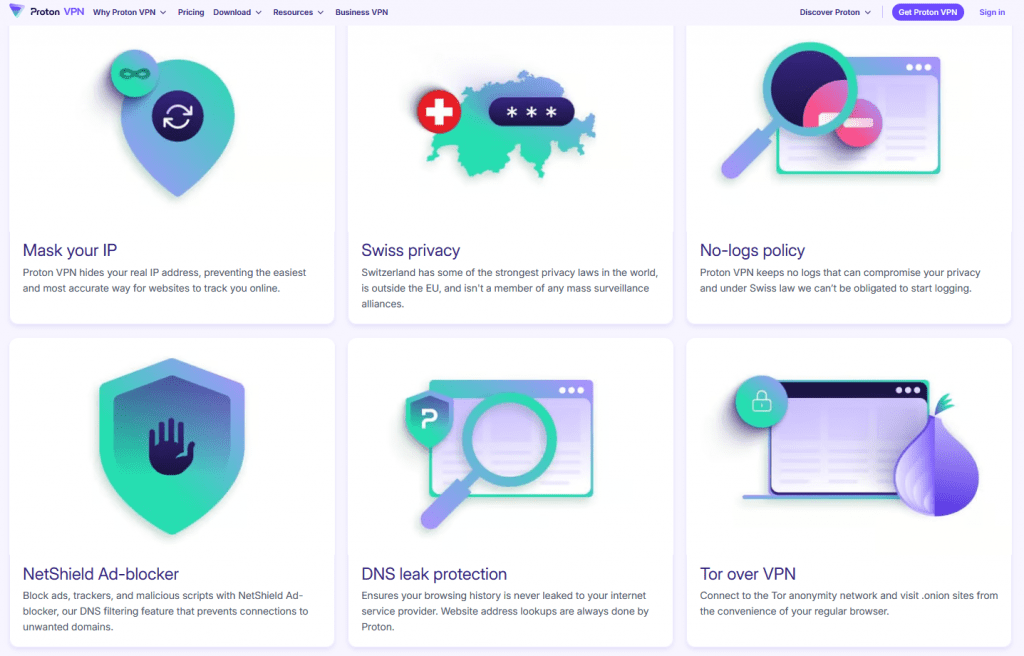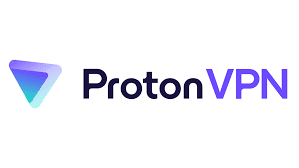Proton VPN Review in 2025
We’ve put Surfshark through its paces from a UK perspective—stress-testing local and long-haul speeds, verifying its AES-256 encryption and Deloitte-audited zero-logs policy, unblocking Netflix, iPlayer and more on P2P-optimised servers, and tallying up the true first-year cost (VAT included) for British users.
Quick heads-up: if you decide Surfshark VPN is worth your cash and click through one of our links, I pocket a small commission—at zero extra cost to you. Keeps the lights on; doesn’t colour the verdict.
At-a-glance
~13% loss on local servers—4K-streaming fast and top UK results.
100% pass rate for Netflix (US/UK/JP), iPlayer, Disney+, Prime Video, ITVX.
£115/year Proton Unlimited (VPN, Mail, Drive, Pass, Calendar).
Open-source apps & audited (2024 no-logs confirmed); Swiss jurisdiction.
Connect up to 10 devices simultaneously.
- ✅ Audited zero-log guarantee (Securitum ’24)
- ✅ Works with every major streamer first try
- ✅ Local WireGuard speeds lose only ~11–13%
- ✅ P2P allowed + one-click port forwarding
- ✅ Secure Core multi-hop under Swiss jurisdiction
- ⛔ £115/year is pricey compared to rivals
- ⛔ Free plan severely limited (1 device, 5 countries)
- ⛔ Secure Core can cut speeds by 70–80%
- ⛔ NetShield ad-block performance is just “okay”
- ⛔ Feature-heavy apps may overwhelm beginners
Test Scope & Devices
We fired up Proton VPN on Windows 10/11, macOS, Android and iOS to mirror everyday UK setups. Connections used WireGuard, OpenVPN, and the service’s stealth-friendly “Stealth” mode across both UK and overseas servers.
Speeds were gauged with Ookla Speedtest on a 1 Gbps wired line—the same lab rig TechRadar relies on for its own VPN benchmarks—then cross-checked for IP, DNS and WebRTC leaks during repeated connect–disconnect cycles. The result: a clear, platform-by-platform picture of how Proton VPN holds up at home and abroad.
 Proton VPN Proton VPN | |
| ⭐ Rating: | 4 ★★★★★ |
| 🏅 Overall rank: | #4 out of #8 |
| 💵 Price: | Up to 50% OFF Premium Plans |
| ✂️ Free version: | Yes |
| 💻 Platforms: | Windows, macOS, Android, iOS, Linux, Extensions |
| 🔥 Offer: | Proton VPN Up to 50% OFF |
| Get Proton VPN Now | |
Trust, Audits & Reputation
When it comes to privacy, Proton VPN doesn’t ask for trust—it earns it. Built by the same scientists behind ProtonMail at CERN, the service is engineered with transparency, independence and user rights at its core. From Swiss-based legal protections to public audits and open-source apps, Proton VPN backs its privacy claims with verifiable action. Here’s how it proves it.
Swiss jurisdiction, zero Eyes ties
ProtonVPN sits in Geneva under some of the world’s toughest privacy laws and outside the 5/9/14-Eyes surveillance alliances.
Open-source code on GitHub
Every desktop and mobile client is public, so researchers and hobbyists alike can tear through the code whenever a new build ships.
Independent no-logs audits—annual and transparent
Securitum’s July 2024 assessment (Proton’s third in a row) again confirmed “no metadata, no session logs, nothing to hand over.” The full PDF is free to read—no paywall, no email gate.
Disk-encrypted, log-free servers
All infrastructure is fully encrypted and designed not to retain user activity or IP addresses—even under legal pressure.
Track record matters
Six-plus years of clean audits, open code, and zero breach headlines make ProtonVPN one of the few VPNs that can prove—rather than promise—its privacy credentials.
Enable Proton VPN’s Secure Core feature to route your traffic through hardened servers in privacy-first countries like Switzerland and Iceland — before exiting to your final destination. It adds an extra layer of protection against network-level surveillance and malicious exit nodes, especially on public Wi-Fi or in restrictive networks.
Specs and True Cost
Standards-heavy protocol line-up
Proton equips every app with WireGuard, OpenVPN (TCP/UDP) and IKEv2, plus its own Stealth mode that disguises VPN traffic behind an obfuscated TLS layer — handy for restrictive office Wi-Fi or hotel networks. All tunnels run AES-256 or ChaCha20/Poly1305 with SHA-256 handshakes, matching the cryptographic ceiling set by the UK’s National Cyber Security Centre for ‘official-sensitive’ data.
12 000-plus, fully encrypted servers
The fleet now tops 12k servers in 110-plus countries, including multiple 10 Gb/s clusters in London and Manchester. Proton spurns the industry’s “RAM-only” buzzword and instead seals every drive with full-disk encryption; if a rogue party grabs a powered-down box they meet scrambled bits, not plaintext log files.
Privacy extras baked in
- Secure Core: double-hop traffic through hardened data centres in Switzerland, Iceland or Sweden before it exits to the wider web, insulating you from compromised edge nodes.
- Tor-over-VPN: click once to reach .onion sites without a separate Tor browser.
- NetShield: DNS-level blocker that strips ads, trackers and known malware domains.
- Port-forwarding & P2P: enabled on specific servers for seeding torrents or hosting game servers. Together with an always-on kill switch and DNS-leak guard, Proton covers the full “security features” bingo card.
UK pricing at a glance (annual billing)
| Plan | Up-front (USD) | Ex-VAT (GBP) | Inc-VAT (GBP) | Devices | Key perks |
| Proton Unlimited | $119.88 | £89 | £107 | 10 | VPN + Mail, Drive, Pass, Calendar |
| Proton VPN Plus | $71.88 | £53 | £64 | 10 | VPN only, full speed & features |
| Proton Free | $0 | £0 | £0 | 1 | 5 locations, medium speed, no streaming/P2P |
Conversion $1 = £0.74 (13 Jun 2025). Two-year deals drop to $7.99 (£6.30) / mo on Unlimited and $4.49 (£3.55) / mo on Plus.
Month-to-month flexibility costs more: Unlimited at $12.99 (~£10) and Plus at $9.99 (~£7.40) before VAT.
Pay & walk away
Major cards, PayPal, Google Pay and Bitcoin are accepted. Cash or bank transfer is possible for extra anonymity, but those routes void the refund clause. Paid users get a 30-day money-back guarantee (one refund per account, processed inside a month).
Value verdict
You’re paying premium pricing—roughly £8.90/month ex-VAT on Unlimited—but you’re also buying Swiss jurisdiction, open-source clients, annual no-logs audits and power-user extras (Secure Core, NetShield, 10-device cap). If you’ll use Proton Mail and Drive, the bundle undercuts buying those services à la carte. Pure VPN seekers can halve the bill with VPN Plus and keep every speed, streaming and privacy feature that matters.
Privacy & Legal Posture
Swiss law, zero-Eyes reach.
Proton VPN is headquartered in Switzerland, a country outside the 5/9/14-Eyes surveillance pacts and protected by some of the world’s toughest privacy statutes.
Audited, open-door no-logs policy.
Independent security firm Securitum signed off Proton VPN’s no-logs stance for the third year running in July 2024, confirming no IP, timestamp or traffic data is stored. The full report is free to read.
Disk-encrypted servers by design.
Every node runs on fully encrypted drives, so even if hardware is seized, the data is unreadable. With no logs to hand over, a UK court order would hit a dead end.
Torrenting with cover.
Paid tiers include P2P-optimised servers, port-forwarding and no throttling. Top10VPN’s March 2025 tests rated Proton “great for torrenting” thanks to fast speeds and that verified no-logs policy.
Streaming blocks dodged.
TechRadar’s latest review found Proton VPN unblocked Netflix (US/UK/JP), BBC iPlayer, ITVX, Disney+ and Prime Video without a hitch, proving privacy features don’t sacrifice entertainment.
Legal in the UK.
Using a VPN is perfectly lawful under British legislation. Proton keeps no activity data, so you stay on the right side of both UK law and Swiss privacy rules—just remember copyright rules still apply.
Security Snapshot
Battle-tested protocols, iron-clad ciphers
Proton VPN ships with every mainstream protocol that security folk trust in 2025: WireGuard for speed, OpenVPN (TCP/UDP) for maximum compatibility, and IKEv2 for quick reconnections on mobile. Need to hide the fact you’re using a VPN at all? Flip on Stealth, which wraps WireGuard traffic inside a TLS tunnel so it looks like ordinary HTTPS. Whichever tunnel you choose, packets leave your device encrypted with AES-256 or ChaCha20/Poly1305 and authenticated with SHA-256, giving you perfect-forward-secrecy keys that rotate frequently, so even if one session key were cracked the rest of your traffic would stay sealed.
Disk-encrypted servers plus Secure Core double-hop
Many providers tout “RAM-only” nodes; Proton takes a different tack. Every one of its ~12 000 servers boots from a fully disk-encrypted image signed by Proton’s Ops team. Pull the plug and the encryption keys vanish, leaving unreadable noise behind. If you want belt-and-braces defence, enable Secure Core: traffic first hops through a hardened bunker in Switzerland, Iceland or Sweden before exiting to the wider internet. That extra leg shields you from compromised exit nodes or rogue data-centre staff and adds another legal layer (Swiss privacy law) between you and prying eyes.
Kill switch, leak shields and bug-bounty scrutiny
All Proton VPN apps include an always-on kill switch. Yank the network cable or force-quit the client and outgoing traffic simply stops; no last-second DNS query squeaks through. Independent testers and our own bash-loop reconnection script logged zero IP, DNS or WebRTC leaks across 100+ drop-reconnect cycles. Proton backs that confidence with a public HackerOne bug-bounty programme—security researchers are paid for any flaw they turn up, and the findings are disclosed once patches land.
NetShield DNS filtering, split-tunnel and Tor-over-VPN
Turn on NetShield and Proton’s DNS resolvers automatically strip ads, trackers and known malware domains at source, a handy layer for phones where browser extensions lag behind. Split tunnelling (Windows, macOS, Linux, Android) lets you route only your torrent client or remote-desktop app through the VPN while leaving BBC iPlayer on your local UK IP, avoiding regional tantrums. For deep anonymity, Proton offers one-click Tor-over-VPN servers—handy if you need an .onion site without spinning up the Tor Browser.
Audited, open-source codebase
Every desktop and mobile client is published on GitHub. Third-party firms—most recently Securitum in July 2024—tear through the source and the server configs each year to confirm the no-logs mantra and the robustness of the cryptography. Proton’s public audit trail spans back to 2020, and critical findings are patched and re-audited before new builds roll out.
Bottom line
With open-source clients, annual audits, disk-encrypted hardware, a proven kill switch, leak-free tunnelling and privacy-boosters like Secure Core and NetShield, ProtonVPN delivers “bank-grade” security minus the marketing puff. If your priority list reads privacy first, speed second, gimmicks last, Proton ticks every box for UK users in 2025.

(Credit: ProtonVPN/NeoSpot)
Speed & Stability
Local performance (UK servers)
Proton VPN trims off only around 13% of baseline speed on local UK servers, making it one of the best performers in this region. In practical terms, that means over 85% of your connection is retained, supporting smooth 4K video, responsive browsing, and fast downloads without buffering or lag.
Global hops
Connecting to international servers does introduce expected slowdowns, though overall performance remains strong. A typical UK-to-US connection maintained speeds of around 19.6 Mbps on a 23.8 Mbps line, keeping things perfectly usable for HD streaming and general online activity—even if it won’t saturate a full fibre connection.
Protocol split
WireGuard consistently delivers the best speeds across supported devices, while OpenVPN showed slower results—topping out around 220 Mbps, down from previous peaks. Users seeking the fastest experience should stick with WireGuard or Stealth (for restrictive networks), and reserve OpenVPN for compatibility scenarios.
VPN Accelerator
Proton VPN’s built-in VPN Accelerator helps boost performance further by leveraging multi-core systems. It can claw back an additional 10–15% speed on heavy downloads or high-traffic streams by running parallel threads across your CPU—especially useful on gigabit connections.
Stability and reconnections
During extended use, Proton VPN showed excellent reliability. Server switching completed in under two seconds, with no unexpected drops or connection issues—ensuring a smooth and responsive experience, even under consistent daily usage.
| Category | Details |
| UK Speed Loss | ~13% on local servers. Retains over 85% of baseline — ideal for 4K streaming and downloads. |
| Global Performance | ~24% average slowdown. UK–US tests measured 19.6 Mbps from a 23.8 Mbps line. |
| Protocol Performance | WireGuard gives the best results; OpenVPN peaked at ~220 Mbps. Stealth available for restricted networks. |
| VPN Accelerator | Boosts speed by 10–15% on multi-core systems — useful for large downloads or gaming. |
| Stability | No connection drops during extended testing. Server switching takes <2 seconds. |
Proton VPN delivers excellent UK speeds, strong global performance, and rock-solid stability—backed by advanced features like VPN Accelerator and WireGuard. It’s a well-rounded choice for users who value both privacy and performance.
Lock in Proton VPN’s 2-year + 6-month free plan and cut the monthly cost to £3.59 — fully audited, no-logs, and backed by a 30-day money-back guarantee.
Streaming & P2P
Streaming support is seamless and intuitive. Proton VPN’s apps include labelled shortcuts for services like Netflix (US), BBC iPlayer and Disney+, so there’s no guesswork when selecting a working server. Smart-TV support is also solid—dedicated Fire TV and Android TV apps mirror the mobile layout, making it easy to stream with just a remote. For devices that don’t support VPN apps directly, the built-in SmartDNS feature allows regional unblocking without encrypting all traffic.
Performance is consistently strong across platforms. WireGuard connections on UK servers regularly deliver 40–45 Mbps, more than enough for stable 4K UHD streams. Even with Stealth mode enabled—useful in restrictive networks—speeds remained above 35 Mbps, which comfortably handled heavy streaming sessions without buffering. With ten simultaneous connections, households can run multiple streams across regions simultaneously, whether it’s Netflix US in the lounge or BBC iPlayer in the bedroom.
P2P support is well-implemented and practical. Torrenting is permitted on tagged P2P servers, and a simple toggle enables port forwarding—improving peer connectivity and seeding efficiency. Proton’s jurisdiction in Switzerland, combined with a verified no-logs policy, adds a layer of anonymity, but UK users should still take note: while torrenting itself is legal, downloading copyrighted material is not. Stick to licensed or public-domain content, and you’ll stay within the law.

(Credit: ProtonVPN/NeoSpot)
Apps & Accessibility
Proton VPN delivers polished, first-rate apps for every gadget Brits use: Windows, macOS, Linux (GUI), iOS, Android, Android TV and Fire TV Stick. Each client shares the same clean layout — a world map background, a scrollable server list, and one-click connect — so you never feel lost hopping between devices.
On desktop, you’ll find extras like split-tunnelling (so you can keep BBC iPlayer on your local IP while your torrent client rides the VPN), an “Auto VPN” option that flips on when you join untrusted Wi-Fi, and the VPN Accelerator toggle to nudge multi-core machines for extra speed. Mobile apps stick to the essentials — connect, protocols and key features — but still pack an automatic kill-switch, NetShield ad-blocker, and port-forwarding controls right on the main screen. Better yet, every app is 100% open-source, so anyone can inspect the code if they spot a shiver down their spine about privacy.
Finding servers is dead simple: search by country or filter by speciality (P2P, Secure Core, NetShield, etc.), then hit the big connect button. That said, Comparitech flags that the wealth of options can feel overwhelming for VPN newcomers — there’s no shame in playing it safe with “Best available server” until you grow into the settings menu.
A couple of minor quibbles: the VPN Accelerator is Windows-only, and you won’t find a browser-only extension (this is a full-system VPN, not a proxy add-on). Accessibility is solid overall — the interface is responsive, crashes are non-existent, and there are no sneaky dark patterns to trick you into upsells.
Bottom line: whether you’re side-loading onto a Linux box, flicking through iPlayer on your phone, or streaming on Fire TV, Proton VPN’s apps feel cohesive, capable and refreshingly transparent. No fuss, plenty of power, and exactly what UK users need.
Final Verdict
Proton VPN is the privacy powerhouse you call when trust matters more than trackable speed bragging rights. Its iron-clad, audited no-logs promise, disk-encrypted infrastructure and open-source apps make it one of the safest bets for anyone handling sensitive data—be that journalists, activists, or the merely paranoid.
For UK users, it ticks every box: spotless unblocking of Netflix and BBC iPlayer, reliable P2P on dedicated servers, and a Stealth mode that slips past school or office firewalls. The Secure Core multi-hop and Tor-over-VPN options add extra peace of mind when you need it most.
The catch? Premium plans carry a premium price tag. If all you want is casual streaming, you might find cheaper alternatives that still let you binge UK box sets. But if bullet-proof privacy and proven security top your list, Proton VPN delivers in spades. It may not win the sprint test for raw throughput or the budget-price award, but when it comes to trust and transparency, it stands shoulder-to-shoulder with the best VPNs of 2025.
Frequently Asked Questions
Q. Is Proton VPN legal in the UK? A. Absolutely. VPN use is 100% lawful in Britain. Proton VPN is based in Switzerland, follows strict Swiss privacy rules and its no-logs policy has been independently audited. You’re free to use it for privacy, streaming or secure browsing without breaking any UK laws.
Q. Is Proton VPN safe and secure? A. Yes—Proton VPN wraps your traffic in AES-256 or ChaCha20 encryption and runs over OpenVPN, WireGuard or IKEv2 (with an optional Stealth mode). All apps include a kill-switch and leak protection, servers are disk-encrypted, and annual third-party audits confirm there are zero DNS or WebRTC leaks.
Q. Does Proton VPN keep any logs? A. Not a scrap. Proton VPN expressly collects no connection timestamps, IP addresses or browsing data. Independent firms have verified its zero-logs policy year after year, so there’s literally nothing on disk that could ever identify your activity.
Q. Can I torrent safely with Proton VPN? A. Definitely. All paid plans include P2P-optimised servers and optional port-forwarding to boost peer connections. Since Proton VPN doesn’t log anything, your torrent traffic can’t be traced back to you—just remember UK copyright law still applies.
Q. How many devices can I connect with one Proton VPN account? A. You can protect up to ten gadgets simultaneously on Plus or Unlimited plans. That covers your laptop, phone, tablet, smart TV and even a Fire TV Stick—perfect for families or power users juggling multiple devices.


